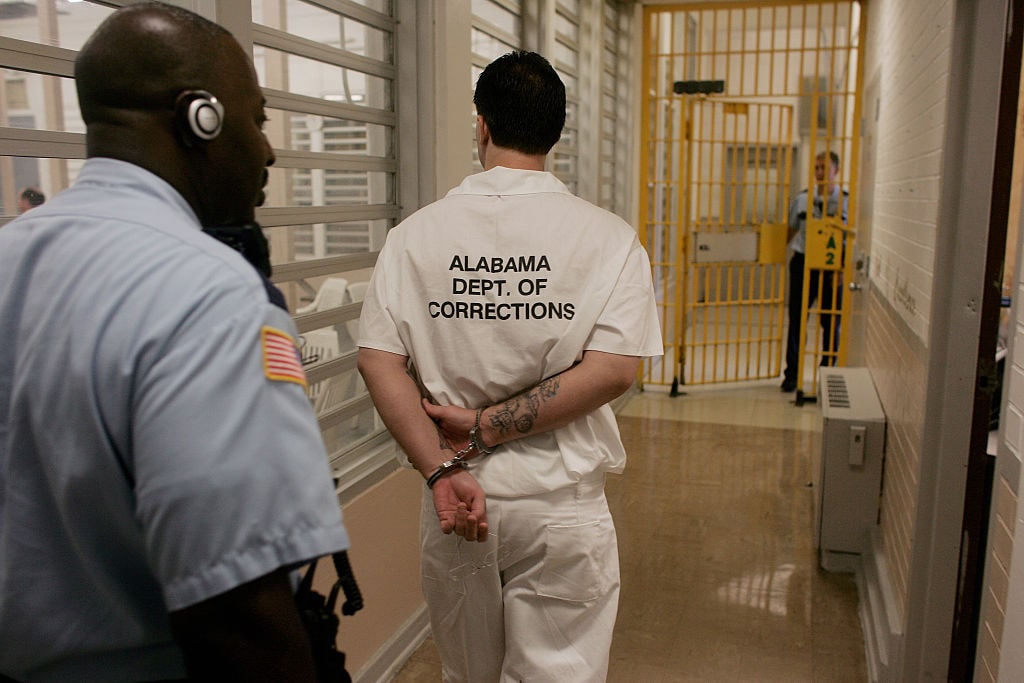The body of an Alabama inmate who died while incarcerated is reported to have been returned to his family without a heart. The shocking story soon went viral, spurring morbid contemplation on possible involuntary organ donation by a vulnerable individual.
“Brandon Clay Dotson was found dead at Ventress Correctional Facility on November 16,” AL.com reported Dec. 8. “The 43-year old’s family claims in a federal lawsuit that [it]… spent days trying to obtain his body.” According to the suit, when prison authorities returned the body, it was in an advanced stage of decomposition.
“The family hired pathologist Dr. Boris Datnow to conduct a second autopsy on Dotson’s body,” AL.com relates. “He had already undergone a first autopsy at the Alabama Department of Forensic Sciences, which is standard procedure for inmates who die in state custody. According to the lawsuit, Datnow discovered during his exam that Dotson did not have a heart.”
There is a trail to be followed here, and it leads to one of the state’s leading public medical schools.
Organ Transfer: From Prison to Medical School
“The suit claims UAB’s School of Medicine obtained Dotson’s heart, and details a 2018 incident where medical students ‘noticed that a disproportionate number of the specimens they encountered during their medical training originated from individuals who had died in prison custody within the Alabama Department of Corrections,’” the news site notes.
 According to Alabama Political Reporter, the suit cites an administrator who admits that a third of the samples in the pulmonary lab come from those in the prison system. “Based on this admission and other information, the UABSOM Students concluded that incarcerated people are 50 times more likely to represent teaching samples than non-incarcerated individuals.”
According to Alabama Political Reporter, the suit cites an administrator who admits that a third of the samples in the pulmonary lab come from those in the prison system. “Based on this admission and other information, the UABSOM Students concluded that incarcerated people are 50 times more likely to represent teaching samples than non-incarcerated individuals.”
No sweeping conclusions should be made at this point, yet the imagery is frightening enough. Human organs are extremely valuable, and prisoners by definition are put in an environment in which they have little control over their own lives.
The website The Medical Futurist writes:
“If you could harvest every organ and chemical in your body, you could make $45 million ….
“Contrary to popular belief, you are not allowed to sell your organs for transplantation purposes in the US. (Nor in any developed country). Although there is/was a loophole not specifically banning the sale of bodies and organs for research purposes, the bad news for wannabe millionaires is that the only one making money from their tissues is a cadaver broker.
“According to the widely used, although somewhat hard-to-find-credit-for figures, a heart is worth around $1 million in the US. Livers come in second, worth about $557,000 and kidneys cost about $262,000 each. Not to speak about human skin ($10/inch), stomach ($500), and eyeballs ($1,500 each).”
In other words, there is an awful lot of money to be made here.
‘Organs That Would Otherwise Seem to Go to Waste’
The Organ Procurement & Transplantation Network fully understands the discomfort that comes with harvesting the body parts of prisoners. “As the scarcity of suitable organs for transplantation continues to grow, alternative sources for organs have been reported and others suggested. One such suggestion is to recover organs that would otherwise seem to go to waste, such as those from condemned prisoners,” a post on the organization’s website titled “The Ethics of Organ Donation from Condemned Prisoners” states.
“Reportedly the People’s Republic of China recovers organs from executed prisoners, and recent US news reports have alleged that organ brokers operate in this country who arrange transplantation of the foreign prisoner’s organs,” the article states. It should go without saying that communist Chinese organ harvesters is not the company any reputable American broker should be keeping.
Here’s where things get frightening. The authors gingerly yet openly mull the possibility of allowing prisoners facing execution to become full-fledged organ donors:
“The proposals that concern organ recovery from executed prisoners unveil another host of problems. One method of execution suggested is the act of organ donation itself. From a utilitarian standpoint this would make sense; the anesthetizing of the condemned and the recovery of organs in the usual manner would produce optimum organs for transplantation.
“However, the cross-clamping the aorta and the ensuing cardiectomy, followed by the disconnection of the ventilator, create an unacceptable situation for the organ recovery team. It clearly places the organ recovery team in the role of executioner. Many physician groups, including the American Medical Association, have prohibited physician participation in state executions on ethical grounds.”
Is it paranoid to see the mere discussion of such barbaric methods as a disquieting omen? As has been clearly proven by the rise of euthanasia in Western countries, the utilitarian ethic is a powerful, seemingly overwhelming, temptation when the modern state gets directly involved in death.
Canada: Euthanize, But Get Those Organs
Canada has one of the most permissive euthanasia operations in the Western world. As Liberty Nation reported Aug. 20, so-called Medical Assistance in Dying (MAiD) “has been an admitted major boon to organ donation in Canada’s largest province by population.”
“Trillium Gift of Life Network is the official organ-donation intermediary of Ontario’s government,” LN documented. “Trillium staffers are a mandatory part of the euthanasia process in Ontario. They don’t merely engage in discussions on organ donation with suicide candidates; they initiate them.”
That’s right. You cannot commit state-assisted suicide in Ontario without first having an official organ-donation staffer affiliated with the government contact you.
The atmosphere is chillingly similar to the prisoner dilemma: vulnerable people being placed in a situation where they are targeted for their financially prized organs.
Without getting into the thick weeds of the lawsuit in Alabama, a terrifying scenario is inescapable to ponder, just as in Canada. The perception that a prisoner’s death while in custody can be financially beneficial to the state is mortifying in the extreme. It is for this very reason that the high number of prisoner pulmonary parts that end up at UAB medical school is so disturbing.




